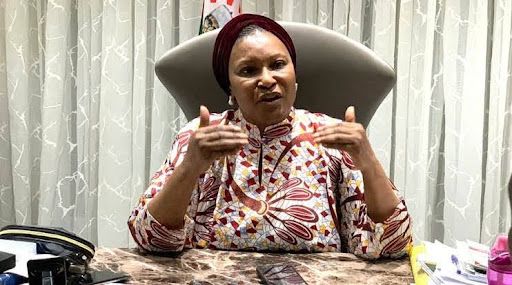Court validates Wike, FCT's crackdown on scavengers, beggars in Abuja
The Federal High Court in Abuja has dismissed a N500 million suit seeking protection for “vulnerable residents” of the Nigeria’s capital city, Abuja, including scavengers, beggars and roadside petty traders.
The decision, delivered on Thursday, allowed the Federal Capital Territory (FCT) authorities, including the FCT minister Nyesom Wike, to proceed with the crackdown aimed at ridding the capital city of the category of people.
“There is no dignity in begging as we are encouraged to work hard,” Judge James Omotosho ruled, holding that the fundamental rights enforcement suit lacked merit.
The judge said begging, as a full-time profession, is usually a result of laziness and indolence on the part of the beggar.
He said if granted, the prayers sought in the suit filed by a lawyer would turn the FCT into “a haven of all sorts of unwanted and unwholesome activities.”
“It is capable of turning the FCT into a safe haven for the destitute and vagabonds around the country. This cannot be the intention of the drafters of the constitution. This can also encourage criminality and breeding ground for all kinds of criminal elements,” the judge said.
He then ruled that any action by the minister to remove the groups in line with the Abuja Environmental Protection Act was “constitutional and legal.”
In November 2024, a lawyer, Abba Hikima, filed a fundamental rights enforcement suit on behalf of homeless persons, scavengers, beggars and petty traders in the FCT.
The lawyer sued the Minister of the FCT, Mr Wike alongside some law enforcement agencies involved in enforcement actions against the targeted population.
The other respondents are the Inspector-General of Police, the Director-General of the State Security Service (SSS), Commandant-General of the Nigeria Security and Civil Defence Corps (NSCDC), the Attorney-General of the Federation, and the federal government.
The suit alleged that the arrests, detention without charge, harassment and extortion of vulnerable persons.
It also claimed that the enforcement actions against the vulnerable persons were executed under Mr Wike’s directive.
According to the lawyer, the actions violated the victims’ rights to dignity, personal liberty, freedom of movement and protection from discrimination as guaranteed under Sections 34, 35, 41 and 42 of the 1999 Constitution.
He sought a declaration that the actions were unconstitutional and prayed for N500 million in general and exemplary damages.
But Mr Wike and the other respondents opposed the court, urging the court to dismiss the suit.
They denied the allegations, describing the individuals as posing environmental, security and public health risks.
They asserted that the enforcement actions were authorised under the Abuja Environmental Protection Act.
The court upholding the defence’s submissions and dismissing the suit in his judgement, Mr Omotosho said the suit was filled with mere assertions without any proof whatsoever to establish his claim.
“The facts stated are speculative without any foundation or proof. The law is trite that a court of law does not act on speculation but on solid evidence,” he ruled.
He held that there was no credible evidence proving the alleged rights violations, adding that the lawyer failed woefully to substantiate the claims against Mr Wike and others.
Therefore, the judge said, “this court will not waste its time relying on newspaper reports to prove the truth of the contents therein. It is hearsay evidence, and no probative value will be ascribed to it.”
He added that the applicant merely relied on uncertified newspapers such as the National Library in line with Section 156 of the Evidence Act.
“In relying on newspaper reports, a party cannot just print or buy a newspaper from a vendor and bring it to court without being certified by National Library,” he said, adding that a newspaper report could be forged or doctored in desperate attempts to get certain results.
The judge said the applicant failed to identify any specific official involved in the alleged rights violations, stressing that the burden of proof rests on the plaintiff.
“In the instant case, the appellants had the onus of proving by credible affidavit evidence that their fundamental rights were breached, but they failed woefully to do so,” he said.
He held that even if the applicant had established that the vulnerable persons were arrested and detained by the respondents, it would not automatically constitute a violation of their rights.
Mr Omotosho drew attention to Mr Wike’s claim in the counter-affidavit, painting a picture of how beggars, scavengers, and petty traders allegedly operate in unauthorised areas and defecate in public, pose security risks, vandalise public property, and serve as informants to kidnappers and terrorist groups.
He also explained that Mr Wike’s claims against the vulnerable persons, such as violating public sanitation laws, amounted to breaches of the Abuja Environmental Protection Act.
“It is clear that these allegations by the 1st respondent constitute grounds to breach of fundamental rights as they are based on allegations of committing crimes within the FCT,” Mr Omotosho said.
The judge also held that fundamental rights are not absolute and may be lawfully breached under certain circumstances, including suspicion of committing a crime and in the interest of public safety, public order, and public health.
Addressing Mr Hikima’s argument that the beggars had not committed any offence and should be allowed to continue begging, the judge ruled that there is no fundamental right to beg and that no law outrightly supports public begging or begging as a venture.
“Even the religious books, such as the Koran, even though it permits begging in certain extreme conditions, frowns against begging as a profession,” he said.
“The Holy Prophet Muhammed in one of the Hadiths (Sahih al-Bukhari) was reported to have said: ‘It is better for one of you to take a rope and bring a bundle of wood on his back and sell it, and Allah will save his face because of that, rather than asking the people who may give him or not.’”
Mr Omotosho said the Bible encourages hard work and warns that indolence leads to poverty, citing Proverbs 10:4, which reads, “begging as a full-time profession is caused by laziness”.
On the N500 million damages requested, the judge questioned how the proceeds would be distributed when no names or identities of the vulnerable persons were provided.
He said it appeared the compensation, if awarded, “would have ended up in the private pockets” of people outside the claimed group.
On 9 July, the Federal Capital Territory Administration (FCTA) launched an initiative, Operation Sweep Abuja, to rid the city of street begging, scavenging, and other related activities deemed a public nuisance.
Barely a day after the launch and the ruling by Mr Omotosho, officials arrested 210 individuals, comprising 80 men, 58 women and 72 children, across several parts of Abuja, including Garki, Asokoro, Wuse, Kubwa and Gwarimpa.
Authorities said the operation followed a directive from the FCT minister and was part of broader efforts to improve urban sanitation and public safety.
You may also like...
Diddy's Legal Troubles & Racketeering Trial

Music mogul Sean 'Diddy' Combs was acquitted of sex trafficking and racketeering charges but convicted on transportation...
Thomas Partey Faces Rape & Sexual Assault Charges

Former Arsenal midfielder Thomas Partey has been formally charged with multiple counts of rape and sexual assault by UK ...
Nigeria Universities Changes Admission Policies

JAMB has clarified its admission policies, rectifying a student's status, reiterating the necessity of its Central Admis...
Ghana's Economic Reforms & Gold Sector Initiatives

Ghana is undertaking a comprehensive economic overhaul with President John Dramani Mahama's 24-Hour Economy and Accelera...
WAFCON 2024 African Women's Football Tournament

The 2024 Women's Africa Cup of Nations opened with thrilling matches, seeing Nigeria's Super Falcons secure a dominant 3...
Emergence & Dynamics of Nigeria's ADC Coalition

A new opposition coalition, led by the African Democratic Congress (ADC), is emerging to challenge President Bola Ahmed ...
Demise of Olubadan of Ibadanland
Oba Owolabi Olakulehin, the 43rd Olubadan of Ibadanland, has died at 90, concluding a life of distinguished service in t...
Death of Nigerian Goalkeeping Legend Peter Rufai

Nigerian football mourns the death of legendary Super Eagles goalkeeper Peter Rufai, who passed away at 61. Known as 'Do...






